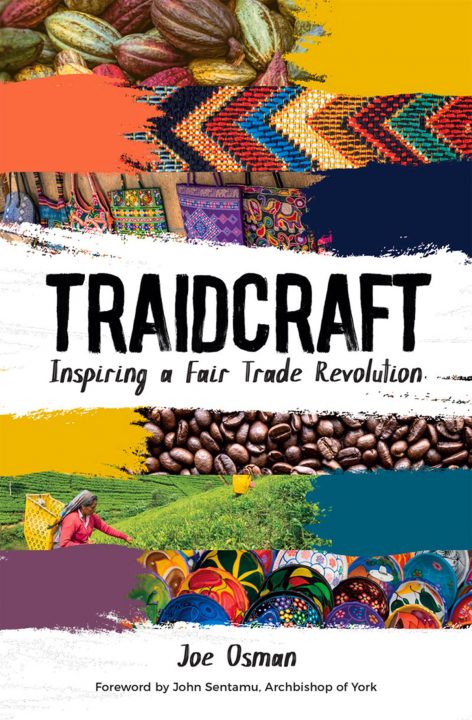TraidCraft: Inspiring a Fair Trade Revolution, Joe Osman (Lion Books, £12.99)
Traidcraft was set up in the UK in 1979 as a Fairtrade organisation, with the fundamental aim of changing peoples’ lives through trade, while saving vanishing traditional skills from extinction and celebrating a world of creativity and culture.
Its first catalogue was hand-drawn, featuring jute products from Bangladesh; within two years, tea, coffee and a range of other foods were introduced. In 1992, Traidcraft co-founded the Fairtrade Foundation, and helped establish the standards that underpin today’s Fairtrade Mark.

It began with a movement of radical, church-based individuals who collaborated with and imported goods directly from artisans and growers, distributing them directly to shoppers.
Joe Osman joined Traidcraft in its early days and here writes passionately and eloquently about the organisation’s first 40 years. He gives rich insights into the organisation, including the strong partnership approach created across like-minded organisations to work through the complex challenges and solutions in getting fair prices for smallholder farmers and producers, as well as the strong partnerships with the farmers themselves.
Related: Fairtrade and the invisible women of the cocoa industry
He touches on the pioneering work that went into making products viable for market through Fairtrade certification, such as tea, coffee, sugar, wine, charcoal and, interestingly, palm oil. And he talks of Traidcraft’s early activity in developing Social Accounts, measuring not just financial impact but the social impact of the work with producers (this was long before social impact reporting was a commonplace practice).
As a daughter of vicars growing up in the 1970s and 80s, Traidcraft stalls at the back of the church were a regular feature of my childhood. It was only later that I realised the strength and reach of this faith-based organisation (and the evolving Fairtrade movement) in seeking trade justice in supply chains for farmers. Osman touches on this, too, as well as the challenges of putting faith into action through a different way of doing business and evolving in a more secular society.
“[It] should come as no surprise to anyone who investigates the development of the Fair Trade movement that Traidcraft was established as a Christian organisation,” writes Osman. “Not only are the principles and values that underpin Fair Trade entirely consonant with those of a Christian worldview, but it was principally within church-based organisations [that] Fair Trade first evolved.”
For me, one of the utter joys of the book was seeing co-operatives weaved throughout the chapters as a means of creating security, solidarity and equity for the smallholder farmers in getting better prices for their goods, and in turn, increasing their incomes and providing improved access to healthcare, education and market training.
The book also highlights the pivotal role the Co-operative Group played in the UK, mainstreaming Fairtrade into stores through the passionate graft and determination of another co-op pioneer, Brad Hill. It was Brad who worked closely with Joe Osman at Traidcraft to bring Fairtrade products into Co-op stores, notably Fairtrade wine. The Co-op Fairtrade Irresistible Malbec is just that.
It was also fascinating to see Traidcraft’s development in the context of the international work at the Co-operative College, which has a long history of working with smallholder farmers and co-operatives in the Global South to get a decent price for goods, improve livelihoods and find ways to make their products climate sustainable.
The College currently works in Malawi, Zambia and Rwanda, supporting smallholder farmers become co-operative enterprises, and with the Co-operatives Europe Development Platform to develop policy and research on the role co-operatives play in creating sustainable livelihoods in the Global South.
“Poverty reduction through trade forms a key part of [Traidcraft’s] aims,” Osman writes. “The organisation supports marginalised small producers, whether these are independent family businesses, or grouped in associations or co-operatives. It seeks to enable them to move from income insecurity and poverty to economic self-sufficiency and ownership.”
This is an inspiring read for anyone interested in trade justice, fair and sustainable supply chains and co-operatives.